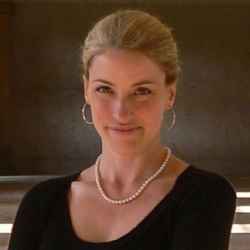News & EventsDepartment Events & Announcements
Events
-
Jan28
EVENT DETAILS
lessTBA
TIME Wednesday, January 28, 2026 at 4:00 PM - 5:00 PM
CONTACT Wynante R Charles wynante.charles@northwestern.edu EMAIL
CALENDAR Department of Computer Science (CS)
-
Jan29
EVENT DETAILS
lessJoin us for our monthly free bagels and coffee while mingling with fellow faculty and students.
There will also be another informal discussion from hosted by CSPAC and CSSI on the topic "AI in Research".
TIME Thursday, January 29, 2026 at 9:00 AM - 11:00 AM
LOCATION 3514, Mudd Hall ( formerly Seeley G. Mudd Library) map it
CONTACT Wynante R Charles wynante.charles@northwestern.edu EMAIL
CALENDAR Department of Computer Science (CS)
-
Feb2
EVENT DETAILS
lessMonday / CS Seminar
February 2 / 12:00 PM
Hybrid / Mudd 3514Speaker
TBATalk Title
TBAAbstract
TBABiography
TBA---
Zoom: TBA
Panopto: TBATIME Monday, February 2, 2026 at 12:00 PM - 1:00 PM
LOCATION 3514, Mudd Hall ( formerly Seeley G. Mudd Library) map it
CONTACT Wynante R Charles wynante.charles@northwestern.edu EMAIL
CALENDAR Department of Computer Science (CS)
-
Feb25
EVENT DETAILS
lessWednesday / CS Seminar
February 25 / 12:00 PM
Hybrid / Mudd 3514Speaker
TBATalk Title
TBAAbstract
TBABiography
TBA---
Zoom: TBA
Panopto: TBATIME Wednesday, February 25, 2026 at 12:00 PM - 1:00 PM
LOCATION 3514, Mudd Hall ( formerly Seeley G. Mudd Library) map it
CONTACT Wynante R Charles wynante.charles@northwestern.edu EMAIL
CALENDAR Department of Computer Science (CS)
-
Feb26
EVENT DETAILS
lessCS Community! Join us for our monthly free bagels and coffee while mingling with fellow faculty and students.
TIME Thursday, February 26, 2026 at 9:00 AM - 11:00 AM
LOCATION 3514, Mudd Hall ( formerly Seeley G. Mudd Library) map it
CONTACT Wynante R Charles wynante.charles@northwestern.edu EMAIL
CALENDAR Department of Computer Science (CS)

